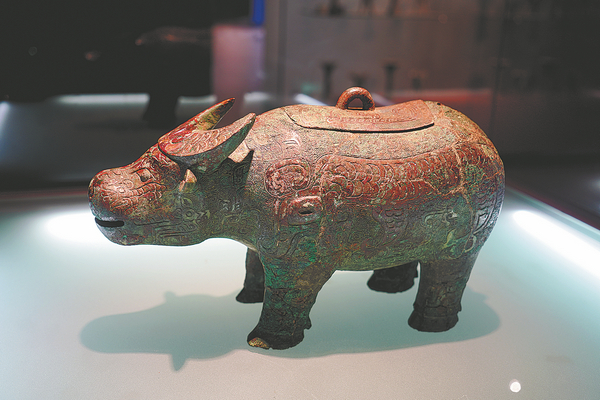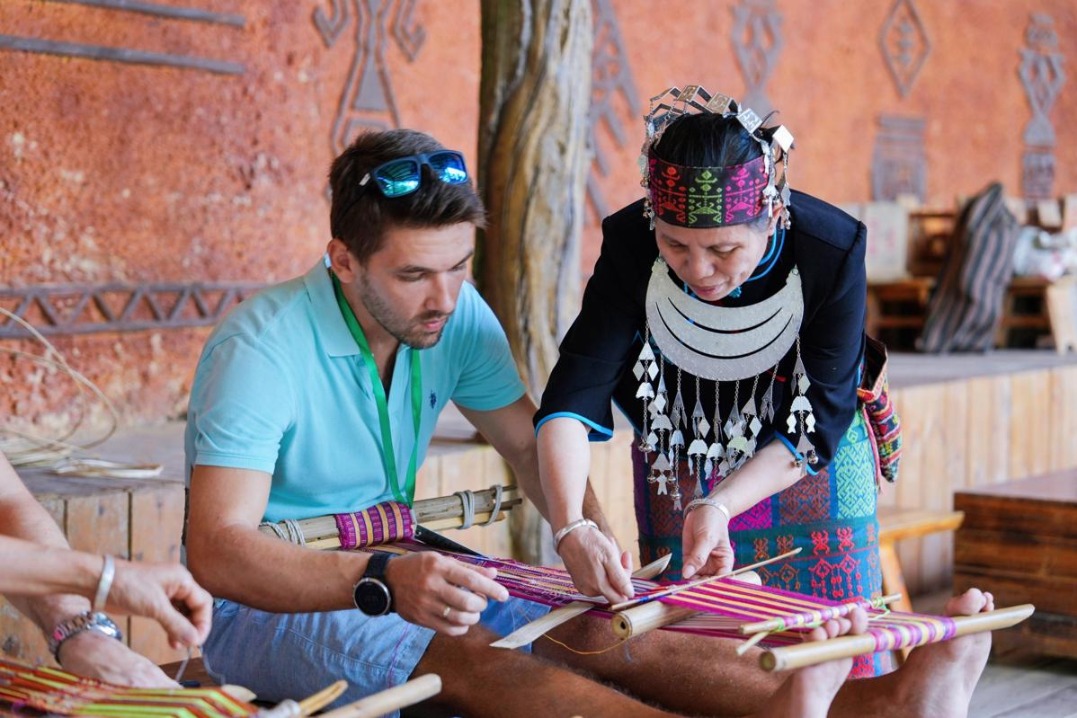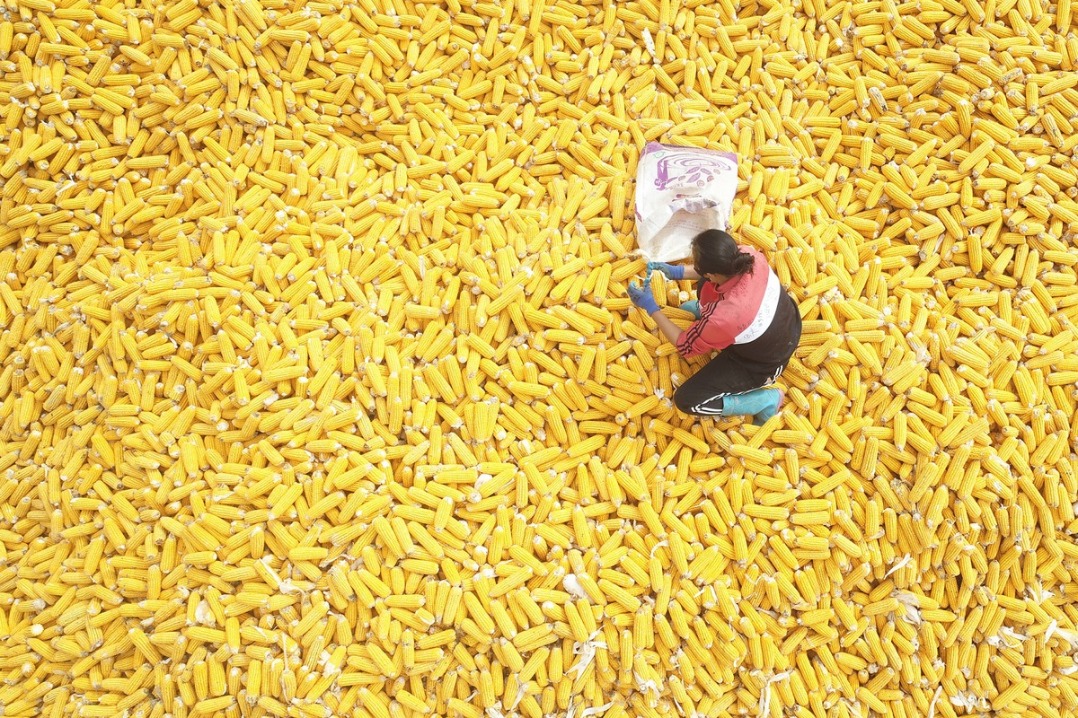All aboard for a 3,000-year journey
In the city of Anyang history is the big drawcard. Make no bones about it, Xu Lin reports.
By Xu Lin | China Daily | Updated: 2021-10-23 09:57

The pit where these bones were unearthed can be seen, containing a human skeleton believed to be of those in charge of the bone archives, akin to modern librarians.
These oracle bone inscriptions frequently mention Fuhao, China's first female general and a wife of King Wuding of the Shang Dynasty.
She seems to have been an exceptionally versatile and independent woman. She had her own fief, was in charge of conscription, won fierce battles, hosted sacrificial rituals, served as a diviner and bore Wuding's children.
He often consulted diviners on Fuhao's health, how she would handle the birth of a child and whether she would win in battle. When she died in her early 30s the grieving king sought news of her in the underworld and made the appropriate sacrifices.
Words of divination carved on oracle bones that are a testament of his love for her have survived the vicissitudes of time.
Visitors can also enter Fuhao's underground tomb. It was discovered in 1976 in the Yinxu Ruins and is the only intact royal tomb of the dynasty. More than 1,900 exquisite burial articles, including 468 bronze and 755 jade objects, have been excavated from the tomb.
The inscription "Fuhao" on more than 100 bronze items makes it clear who the tomb belonged to.
A bronze yue, or battle ax, as heavy as 9 kilograms, was one of the weapons she used in battle. There are also jade hairpins, bronze mirrors and jade ornaments of various animals. Everything points to a battle-hardened, intrepid warrior-who also liked dressing in ornate clothes.
Another tomb is where the acclaimed 833-kilogram houmuwu ding, the world's heaviest ancient bronze item, was unearthed. Some experts believe it was dedicated to another of Wuding's wives.
























